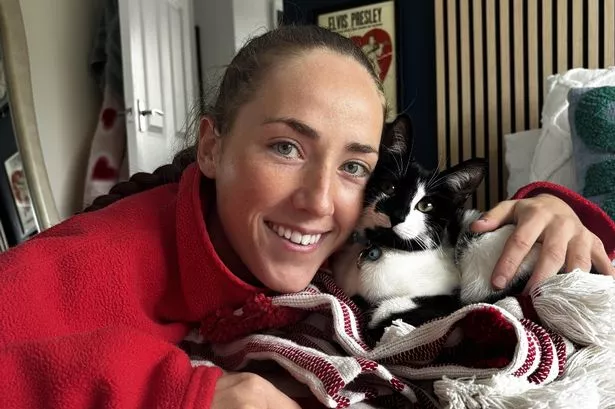In a powerful call for enhanced animal welfare, a prominent Aston Villa and England footballer is championing a significant legislative amendment following the deeply distressing discovery of her deceased cat. This athlete’s personal tragedy has ignited a public campaign aimed at rectifying perceived inequities in current animal protection laws, particularly concerning road incidents involving beloved felines.
Lucy Parker, the 26-year-old defender, shared her profound sorrow over finding her cat, Wilma, highlighting the unique pain of losing a cherished pet under such circumstances. While acknowledging the grim “small mercy” of Wilma’s discovery, Parker emphasized that countless pet owners endure prolonged anguish without any form of closure, a predicament she is determined to address through her advocacy for better animal rights UK.
Driven by her experience, Parker is now ardently advocating for a pivotal change in the law: establishing a mandatory requirement for drivers to report road accidents involving cats. This measure would mirror existing legislation that mandates reporting for collisions with other animals such as dogs, horses, and cattle, aiming to bring a fairer system to road safety for cats across the nation.
Furthermore, collaborating closely with the RSPCA, the celebrated Lioness standby is pushing for the compulsory scanning of cats for microchips after road incidents. This critical step would ensure that owners are promptly informed of their pet’s fate, regardless of the outcome, providing vital information and potentially enabling timely veterinary intervention, reinforcing the importance of pet loss support.
The timeline of Wilma’s disappearance underscores the urgent need for such reforms. Wilma went missing on May 17th and was discovered a day later; however, Parker was not notified until May 20th. This delay starkly illustrates the current communication gaps and the lack of robust protocols that can exacerbate the suffering of owners during distressing times, underscoring the systemic issues with cat welfare reporting.
Parker eloquently articulated her dismay, stating that the absence of a legal mandate for reporting cat-involved road incidents “doesn’t seem fair.” She passionately asserts that cats are integral family members in innumerable households and their welfare on the roads is currently not adequately recognized. She is resolute in leveraging her platform to “level the playing field,” whether by urging government action, promoting local authority scanning, or educating motorists on their responsibilities.
Alice Potter, a cat welfare expert from the RSPCA, echoed Parker’s sentiments, emphasizing that while no legal obligation exists, moral responsibility should guide motorists. Potter urged drivers involved in cat collisions to safely stop, attempt to locate the owner, or transport the injured animal to a vet immediately. Vets can provide essential treatment and, crucially, scan for microchips to notify owners, offering essential pet loss support even in tragic circumstances.
The tragic narrative of Wilma powerfully illuminates the profound significance of achieving closure for grieving pet owners. Both Parker and the RSPCA are committed to securing a more equitable and compassionate framework for cats and their owners across the UK, striving for a future where no owner is left without answers following such devastating events, thereby championing comprehensive animal rights UK.





Leave a Reply